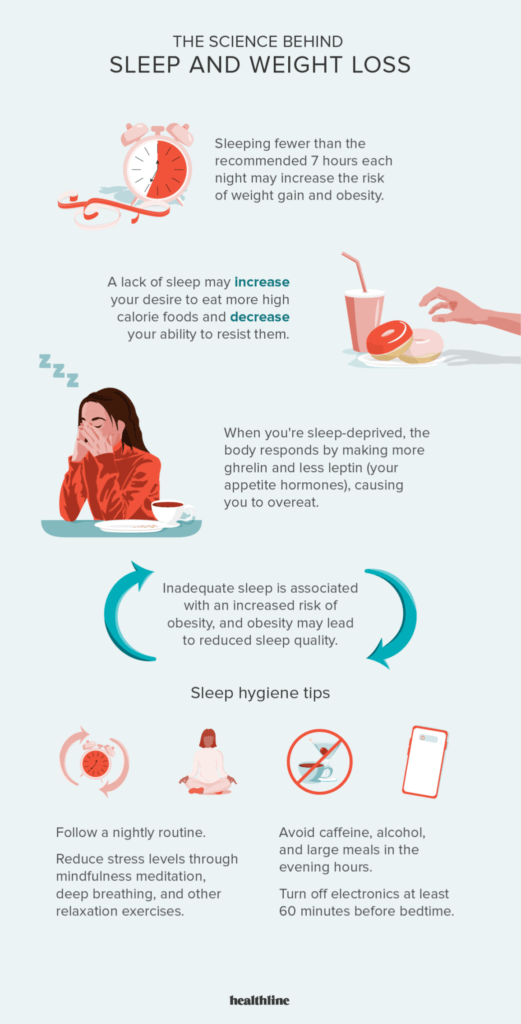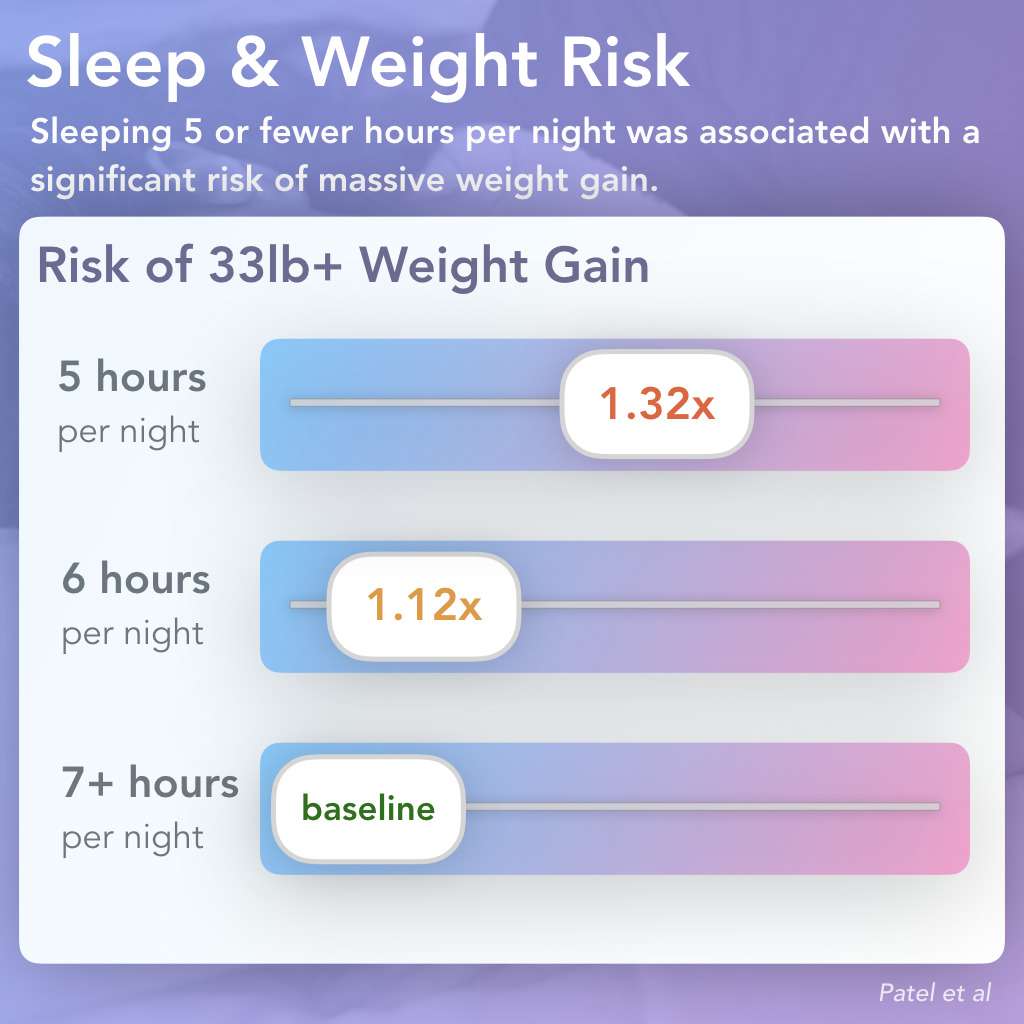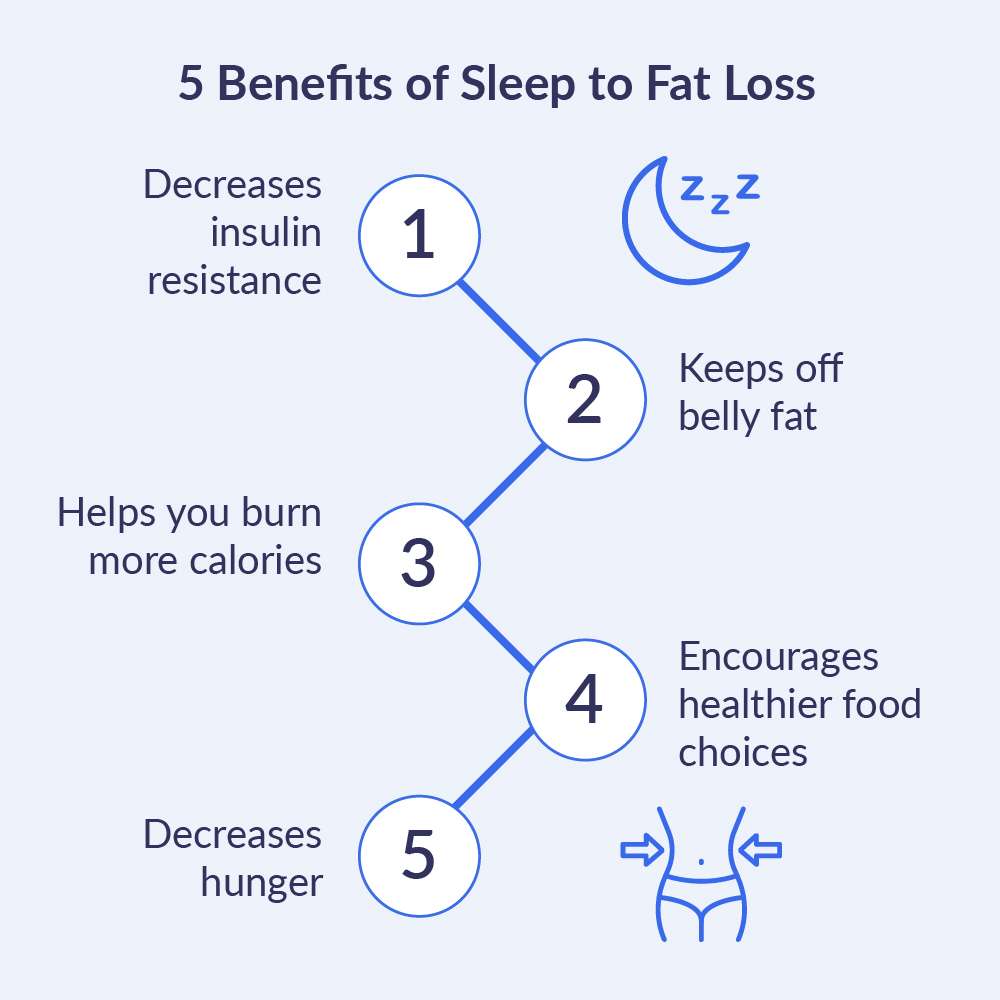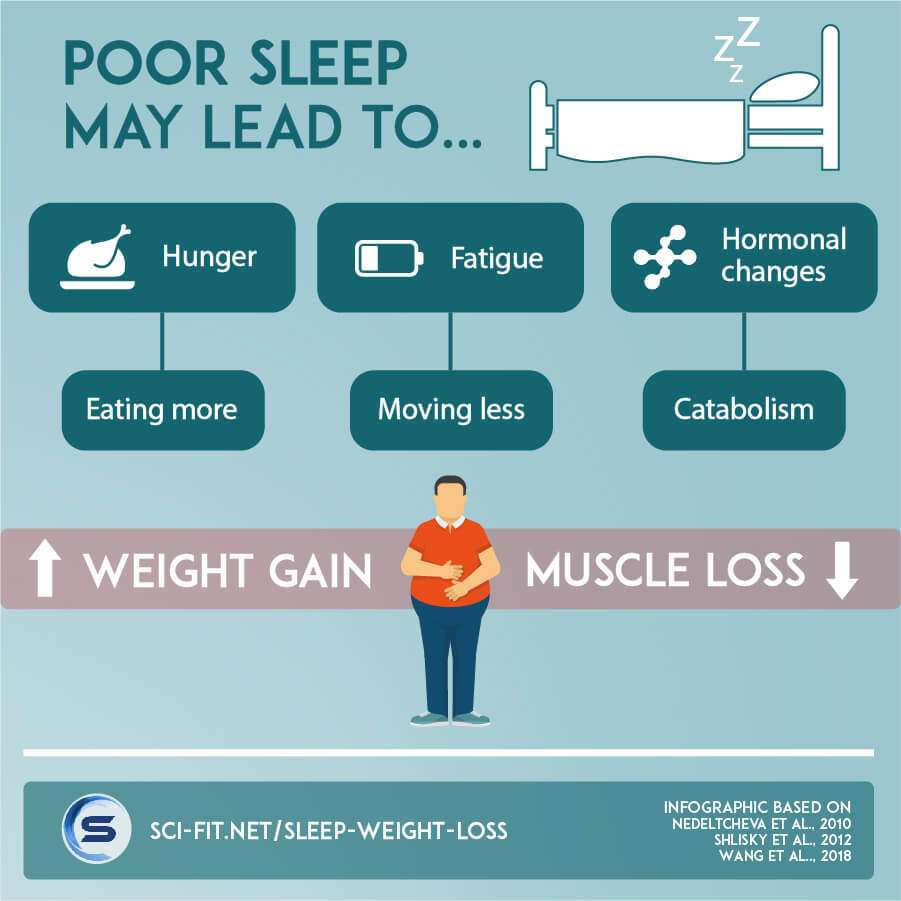Did you know that getting a good night’s sleep can actually play a significant role in weight loss? It may seem surprising, but studies have shown the important connection between quality sleep and shedding those extra pounds. When you prioritize a sufficient amount of sleep, you provide your body with the opportunity to rest, recover, and recharge. During sleep, various metabolic processes take place, including hormone regulation and repair of cells and tissues, which are essential for maintaining a healthy weight.
Additionally, when you’re well-rested, you’re more likely to make healthier choices throughout the day. Lack of sleep can lead to increased cravings for sugary and high-calorie foods, making it harder to stick to a balanced diet. Moreover, inadequate sleep can affect your energy levels and motivation, making it more challenging to engage in physical activity. So, if you’re trying to reach your weight loss goals, don’t overlook the importance of a good night’s sleep. Prioritize sleep as an essential part of your weight loss journey and enjoy the benefits it brings to both your body and mind.

The Connection Between Sleep and Weight Loss
Getting enough sleep is not only crucial for overall health and well-being, but it also plays a significant role in maintaining a healthy weight. Sleep and weight loss are interconnected in several ways, and understanding this connection can greatly enhance your weight loss efforts. In this article, we will explore the various ways in which sleep deprivation affects weight gain, the impact of poor sleep on metabolism and appetite, and how quality sleep promotes healthy habits.
The link between sleep deprivation and weight gain
Research has shown a clear link between inadequate sleep and weight gain. When you don’t get enough sleep, hormonal imbalances occur, which can lead to increased appetite and cravings for unhealthy foods. Moreover, sleep deprivation affects your body’s ability to metabolize carbohydrates, leading to increased insulin resistance and a higher likelihood of weight gain.
How lack of sleep affects appetite and cravings
Have you ever noticed that after a night of poor sleep, you tend to crave sugary snacks and unhealthy comfort foods? This is because sleep deprivation disrupts the balance of hormones that regulate appetite. The levels of ghrelin, the hormone that stimulates hunger, increase, while levels of leptin, the hormone that signals satiety, decrease. As a result, you may find yourself reaching for calorie-dense foods to satisfy cravings and provide an energy boost.
The impact of poor sleep on metabolism
A sluggish metabolism can make it difficult to shed those extra pounds, and lack of sleep can significantly hinder your metabolic rate. When you’re sleep-deprived, your body produces more cortisol, the stress hormone that not only increases appetite but also slows down your metabolism. Additionally, sleep deprivation impairs the functioning of your thyroid gland, which plays a crucial role in regulating the metabolic processes of your body. This combination of hormonal imbalances and reduced metabolic rate can contribute to weight gain.
Quality Sleep Promotes Healthy Habits
It is not just the quantity of sleep that matters but also the quality. Quality sleep promotes healthy habits that can support your weight loss journey. Let’s explore some of the ways in which sleep influences exercise, daily energy expenditure, and food choices.
Sleep and exercise: The reciprocal relationship
Regular exercise is essential for weight loss, and sleep plays a vital role in optimizing exercise performance and recovery. When you get enough sleep, you feel more energized and motivated to engage in physical activity. Additionally, during sleep, your body repairs and strengthens muscle tissue, allowing you to exercise more effectively. On the other hand, engaging in regular physical activity can improve the quality of your sleep, helping you fall asleep faster and enjoy more restful nights.
The role of sleep in daily energy expenditure
Your body’s daily energy expenditure, or the number of calories burned at rest, is influenced by sleep. When you get adequate sleep, your body efficiently utilizes energy, contributing to higher daily energy expenditure. On the contrary, sleep deprivation disrupts this energy balance, leading to reduced energy expenditure and a higher likelihood of weight gain.
Better sleep leads to healthier food choices
The quality of your sleep also influences the food choices you make throughout the day. When you are well-rested, you are more likely to make healthier food choices and resist the temptation of unhealthy snacks. However, when you’re sleep-deprived, your brain’s reward center becomes more responsive to high-calorie, unhealthy foods. This makes it harder to resist cravings and make rational decisions about your diet. Therefore, ensuring you get adequate sleep can significantly enhance your ability to make healthy food choices and achieve your weight loss goals.

Hormonal Regulation and Sleep
Hormones play a crucial role in weight regulation, and sleep has a profound influence on hormone levels. Let’s delve into the impact of sleep on ghrelin, leptin, cortisol, and insulin, and how these hormonal imbalances can affect weight.
The influence of sleep on ghrelin and leptin levels
Ghrelin and leptin are two hormones responsible for regulating appetite and satiety. Ghrelin stimulates hunger, while leptin signals fullness. Sleep deprivation disrupts the delicate balance between these hormones, leading to an increase in ghrelin levels, which in turn triggers hunger and cravings. Additionally, the decrease in leptin levels makes it harder for your body to recognize when it’s full, often resulting in overeating and weight gain.
Cortisol and its impact on sleep and weight
Cortisol, often referred to as the stress hormone, plays a significant role in sleep and weight management. When you’re sleep-deprived, your body produces excess cortisol, which not only hinders your ability to fall asleep but also contributes to weight gain. Elevated cortisol levels lead to increased appetite, particularly for high-calorie foods, and promote fat storage, especially in the abdominal region. By improving your sleep patterns, you can help regulate cortisol levels and promote better weight control.
Insulin resistance and sleep deprivation
Insulin resistance occurs when your body becomes less responsive to the effects of insulin, resulting in higher blood sugar levels and weight gain. Sleep deprivation has been linked to increased insulin resistance, making it more challenging for your body to metabolize carbohydrates and regulate blood sugar levels. This can lead to weight gain, as excess sugar in the blood is converted and stored as fat. Prioritizing adequate sleep can improve insulin sensitivity and help maintain a healthy weight.
Sleep Deprivation-Induced Weight Gain
Sleep deprivation can significantly impact weight management, making it harder to achieve and maintain a healthy weight. Let’s explore how caloric intake, weight loss efforts, stress, and emotional eating are influenced by lack of sleep.
Caloric intake and sleep loss
When you’re sleep-deprived, you are more likely to consume more calories than your body needs. This can be attributed to the hormonal imbalances that occur with sleep deprivation. The increase in ghrelin levels stimulates hunger, leading to excessive calorie intake. Additionally, lack of sleep affects the brain’s reward center, making high-calorie, unhealthy foods more appealing. The combination of hormonal imbalances and altered food preferences can contribute to weight gain.
The effect of sleep deprivation on weight management
Weight management becomes more challenging when you are not getting enough sleep. Sleep deprivation affects your ability to resist cravings, make healthy food choices, and maintain portion control. Moreover, when you’re sleep-deprived, your energy levels plummet, making it harder to find the motivation to engage in physical activity. This combination of increased caloric intake and decreased physical activity can lead to weight gain and hinder your weight loss efforts.
The role of stress and emotional eating
Sleep deprivation can also have a significant impact on stress levels, which, in turn, affects weight management. When you’re sleep-deprived, your body produces excess cortisol, leading to increased stress levels. Elevated cortisol levels can trigger emotional eating, where you seek comfort in food to cope with stress and negative emotions. This can create a vicious cycle, where poor sleep leads to increased stress, which then drives emotional eating and weight gain. Recognizing and managing stress levels is crucial in maintaining a healthy weight.

Sleep Quality and Weight Loss Success
Not all sleep is created equal, and certain stages of sleep play a vital role in weight loss. The quality of your sleep can significantly impact weight loss success, and here’s why:
The importance of deep sleep and REM sleep for weight loss
During deep sleep and REM (Rapid Eye Movement) sleep, your body undergoes essential processes that are crucial for weight loss. Deep sleep is responsible for restoring and repairing muscles, while REM sleep plays a role in cognitive function and memory consolidation. Both stages of sleep are necessary for regulating hormones, such as ghrelin and leptin, and promoting a healthy metabolism. Ensuring adequate amounts of deep sleep and REM sleep can optimize weight loss efforts.
The relationship between sleep duration and weight loss efforts
Not only does the quality of sleep matter, but the duration of sleep also plays a significant role in weight loss efforts. Research has shown that individuals who consistently get less than seven hours of sleep per night are more likely to experience weight gain. This can be attributed to the hormone imbalances and increased appetite associated with sleep deprivation. To maximize weight loss success, it is essential to prioritize both the quality and quantity of your sleep.
The impact of sleep fragmentation on body composition
Sleep fragmentation refers to the frequent interruptions in your sleep cycle, preventing you from experiencing uninterrupted, restorative sleep. This can lead to a decrease in deep sleep and REM sleep, which are essential for weight loss. Sleep fragmentation can also result in elevated cortisol levels, increased stress, and impaired glucose metabolism, all of which contribute to weight gain. Taking steps to improve sleep continuity can have a positive impact on your body composition and weight management.
Sleep Strategies for Weight Loss
Now that we understand the connection between sleep and weight loss, it’s important to implement strategies that promote healthy sleep patterns. Here are some useful tips to improve your sleep quality:
Establishing a consistent sleep schedule
Creating a consistent sleep schedule helps regulate your body’s internal clock, making it easier to fall asleep and wake up naturally. Aim to go to bed and wake up at the same time each day, even on weekends. This consistency helps maintain a regular sleep-wake cycle, promoting better sleep quality and enhancing weight loss efforts.
Creating a sleep-friendly environment
Your sleep environment plays a significant role in your ability to achieve restful sleep. Make your bedroom a peaceful and comfortable space by keeping it cool, dark, and quiet. Invest in a supportive mattress and pillows to ensure proper spinal alignment and sleep posture. Additionally, limit the use of electronic devices before bed, as the blue light emitted can interfere with your body’s natural sleep-wake cycle.
Practicing relaxation techniques before bed
Engaging in relaxing activities before bed can help prepare your mind and body for sleep. Consider incorporating relaxation techniques such as deep breathing exercises, meditation, or gentle stretching into your bedtime routine. These practices can help reduce stress levels, promote relaxation, and facilitate a peaceful transition into sleep.

Tips for Better Sleep
In addition to implementing sleep strategies for weight loss, there are more general tips that can help improve the quality of your sleep:
Limiting caffeine and alcohol consumption
Caffeine and alcohol can disrupt your sleep patterns and make it harder to fall asleep and stay asleep. Limit your intake of caffeinated beverages, such as coffee and tea, especially in the afternoon and evening. Similarly, while alcohol may initially make you feel drowsy, it can disrupt the quality of your sleep, leading to frequent awakenings and poorer overall sleep.
The influence of physical activity on sleep quality
Engaging in regular physical activity can have a positive impact on your sleep quality. However, it is important to time your exercise appropriately. Vigorous exercise too close to bedtime can stimulate your body and make it harder to fall asleep. Aim to complete your workout at least a few hours before bedtime to allow your body time to wind down and relax.
Creating a bedtime routine
Establishing a bedtime routine can signal to your body that it’s time to wind down and prepare for sleep. Engage in relaxing activities leading up to bedtime, such as reading a book, taking a warm bath, or practicing gentle yoga stretches. Creating a consistent routine helps train your body to associate these activities with sleep, making it easier to fall asleep and maintain restful sleep throughout the night.
Effects of Sleep Disorders on Weight
Certain sleep disorders can have a significant impact on weight gain and weight management. Here are a few examples of common sleep disorders and their implications for weight:
How sleep apnea affects weight gain
Sleep apnea is a sleep disorder characterized by breathing interruptions during sleep. Studies have shown a clear association between sleep apnea and weight gain. This can be attributed to the disrupted sleep patterns caused by sleep apnea, which lead to hormonal imbalances, increased appetite, and a decrease in physical activity. Treating sleep apnea can help improve sleep quality and facilitate weight loss.
Insomnia and its impact on weight management
Insomnia, which refers to difficulty falling asleep or staying asleep, can significantly impact weight management. Sleep deprivation caused by insomnia can lead to increased levels of hunger hormones, such as ghrelin, and decreased levels of leptin, signaling satiety. This hormonal imbalance can contribute to overeating and weight gain. Addressing insomnia and improving sleep quality are essential in managing weight effectively.
Other sleep disorders and their implications for weight
Other sleep disorders, such as restless legs syndrome and narcolepsy, can also influence weight gain and weight management. Restless legs syndrome can disrupt sleep patterns and lead to reduced sleep quality, while narcolepsy can impact daytime energy levels and exercise capacity. Managing these sleep disorders through proper diagnosis and treatment is crucial in achieving and maintaining a healthy weight.

Sleep and Psychological Well-being
In addition to its physical implications, sleep also plays an integral role in psychological well-being. Let’s explore how sleep affects mental health, stress management, mood, and motivation.
The relationship between sleep and mental health
Adequate sleep is essential for maintaining optimal mental health. Sleep deprivation has been linked to an increased risk of developing mental health conditions such as depression and anxiety. Additionally, individuals with pre-existing mental health conditions may experience worsened symptoms and decreased overall well-being when their sleep is compromised. Prioritizing quality sleep can help support positive mental health outcomes.
The role of adequate sleep in stress management
When you’re well-rested, you are better equipped to manage stress effectively. Sleep deprivation, on the other hand, can amplify the body’s stress response and make it more challenging to cope with daily stressors. By prioritizing sleep and ensuring sufficient rest, you can enhance your resilience to stress, improve cognitive function, and maintain better emotional well-being.
Sleep’s effect on mood and motivation
A lack of sleep can leave you feeling irritable, moody, and lacking the motivation to engage in healthy behaviors. Sleep deprivation impacts the brain’s reward center, making it harder to find pleasure and satisfaction in daily activities. On the other hand, quality sleep enhances mood, boosts motivation, and promotes a positive outlook on life. By prioritizing sleep, you can create a solid foundation for improved mental and emotional well-being.
Considerations for Successful Weight Loss
Weight management is a complex process that requires a comprehensive approach. While diet and exercise are often the main focus, it is essential to recognize the multifactorial nature of weight gain. Quality sleep is a crucial factor that should not be overlooked. Here are some considerations for successful weight loss:
The need for a comprehensive approach to weight management
Weight management should not be approached as a single-dimensional task. It requires a comprehensive approach that addresses various factors, including diet, exercise, stress management, and sleep. By considering the impact of all these factors and identifying areas for improvement, you can create a holistic plan for successful weight loss.
Recognizing the multifactorial nature of weight gain
Weight gain is rarely caused by a single factor. It often results from a combination of genetic predisposition, lifestyle choices, hormonal imbalances, and environmental influences. By recognizing the multifactorial nature of weight gain, you can adopt a more compassionate and understanding approach towards yourself and others in their weight loss journeys.
The importance of addressing sleep quality in weight loss programs
When embarking on a weight loss journey, it is crucial to prioritize sleep quality alongside dietary and exercise modifications. By improving sleep quantity and quality, you can support hormonal regulation, enhance metabolism, and optimize energy levels. This, in turn, facilitates better food choices, increased exercise performance, and overall weight loss success.
In conclusion, the link between sleep and weight loss is undeniable. Quality sleep promotes healthy habits, regulates hormones, and supports weight management. By understanding the impact of sleep deprivation on weight gain, implementing strategies for better sleep, and considering the multifactorial nature of weight gain, you can pave the way for successful weight loss and overall well-being. Remember, a good night’s sleep is not just a luxury but a crucial component of your weight loss journey. So make sleep a priority, and watch the pounds fall off as you rest and rejuvenate.
